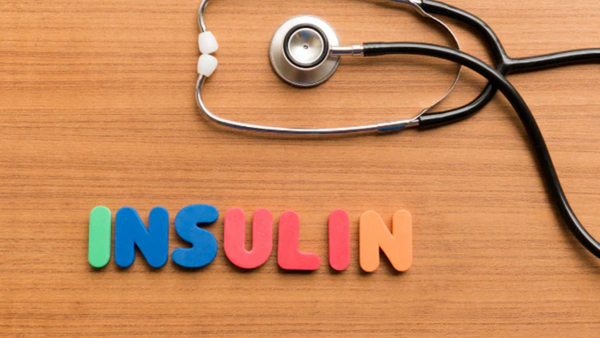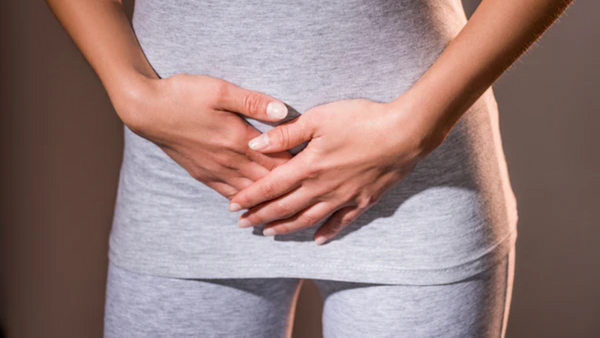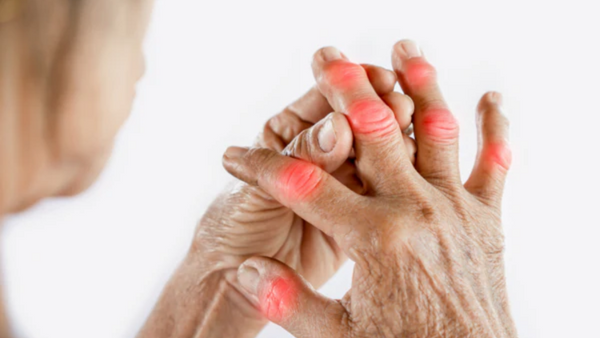Insulin resistance is a widespread disease. It is the cause of many diseases, primarily type 2 diabetes . According to data from 2019, around 15.3% of adult Germans have diabetes. [1] But this is just the tip of the iceberg. Insulin resistance develops over many years. This means that an incredible number of adults have subthreshold insulin resistance - in most cases it is not even diagnosed.
But what is insulin resistance anyway? You probably know insulin as a hormone that lowers blood sugar. But insulin does a lot more than that. For example, it is also a fat storage hormone.
Insulin resistance means that cells no longer respond as well to insulin. Since high blood sugar is harmful, the pancreas secretes more insulin. This forces the cells to absorb sugar from the blood. However, increased insulin levels increase insulin resistance. It is a vicious cycle that leads to insulin levels rising and insulin resistance increasing. Since the pancreas' capacity to produce insulin is limited, it eventually reaches the point where it no longer produces enough insulin to adequately control blood sugar levels. This then leads to type 2 diabetes.
But even without diabetes, the risk of many diseases is already increased, such as cardiovascular diseases, dementia, autoimmune diseases and cancer.
In order to improve insulin resistance, a change in lifestyle is necessary. Eating habits in particular play a crucial role. But restful sleep and exercise can also have a positive effect on insulin resistance.

In addition, certain plant substances and nutrients can also influence insulin resistance.
Antioxidants: curcumin, OPC, astaxanthin and grapefruit seed extract
Oxidative stress and the resulting inflammation can promote insulin resistance. Conversely, insulin resistance also causes inflammation. It is a typical chicken-and-egg problem: insulin resistance and chronic inflammation go hand in hand and are mutually dependent. It is difficult to say which of the two is the cause and which is the consequence. [2]
Studies suggest that curcumin can lower blood sugar. This appears to be due to the fact that the active ingredient regulates insulin resistance, which allows cells to better absorb sugar from the blood. In a study on patients with prediabetes, subjects who took a curcumin preparation for 9 months had a significantly lower risk of developing diabetes than the control group. [3]
Grapefruit seed extract also appears to be able to improve insulin resistance. Researchers suspect that this is due to the fact that the naringenin it contains can lower potentially harmful LDL cholesterol. [4]
The research on OPC is still quite thin, but some studies suggest that OPC can improve cholesterol levels and insulin resistance. [5]
Astaxanthin is one of the most powerful antioxidants available and also has anti-inflammatory effects. Astaxanthin is also said to be able to improve insulin resistance. In a study with type 2 diabetics, the subjects showed improved blood lipid and cholesterol levels, as well as lower blood pressure and a lower body fat percentage after taking astaxanthin. This was probably due to improved insulin resistance. [6]
Vitamin D
Type 2 diabetes is strongly associated with vitamin D deficiency . And the degree of insulin resistance also correlates with the extent of the deficiency. [7]
Conversely, vitamin D supplementation appears to improve insulin resistance. This is suggested by a review of women with polycystic ovary syndrome. [8]
L-Carnitine
L-carnitine is needed to transport fatty acids into the mitochondria, the powerhouses of our cells. In this way, it can probably lower blood lipid levels, so-called triglycerides. Elevated triglycerides are a typical sign of insulin resistance. But L-carnitine also seems to be able to improve other symptoms of insulin resistance. According to a large meta-analysis, L-carnitine could improve cholesterol levels, lower fasting blood sugar and inflammatory markers, and have a positive effect on markers for insulin resistance (HOMA-IR). [9]
This may explain why L-carnitine deficiency appears to increase the risk of type 2 diabetes.

Conclusion: Antioxidants can support the treatment of insulin resistance
Diet plays an important role in the development and treatment of insulin resistance. Nutrients in the diet can also influence insulin resistance. Certain deficiencies promote insulin resistance. Antioxidants appear to be beneficial in insulin resistance due to their anti-inflammatory effects.
WE HAVE GOT YOU A 10% VOUCHER FOR OUR
Turmeric , Premium OPC , Astaxanthin , Grapefruit Seed Extract , L-Carnitine and Vitamin D3
PROVIDED AND HOPE TO BRING YOU JOY WITH IT.
SIMPLY COPY THE FOLLOWING COUPON CODE
AND ENTER IT AT CHECKOUT:
INSULIN+V10
To the products
[1] https://www.idf.org/index.php?option=com_attachments&task=download&id=2106:WDD2019-Regional-PR-Germany_Final_IDF
[2] https://www.ahajournals.org/doi/10.1161/CIRCRESAHA.119.315896
[3] https://pubmed.ncbi.nlm.nih.gov/22773702/
[4] https://pubmed.ncbi.nlm.nih.gov/19592617/
[5] https://www.ncbi.nlm.nih.gov/pmc/articles/PMC3972396/
[6] https://apjcn.nhri.org.tw/server/APJCN/27/2/341.pdf
[7] https://www.deutsche-apotheker-zeitung.de/daz-az/2012/daz-31-2012/diabetes-und-vitamin-d

















